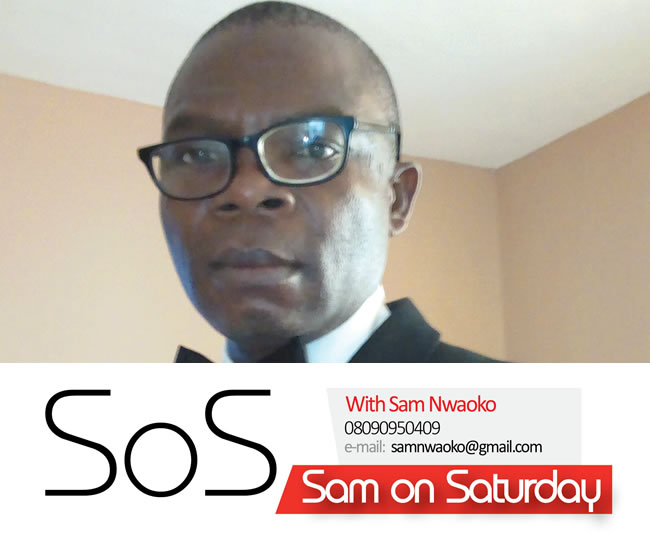DURING the week, popular Islamic cleric and now advocate for bandits of Northern Nigeria, Sheikh Ahmad Gumi, reiterated his charge on Nigeria to look in the way of the bandits and give them an ear. He said without some assurance, the bandits would not surrender their trade and weapons until they feel safe. It was an emphatic demand, the type that stirs confusion. I recoiled and asked myself: Safe from who? Safe from what? Feel safe where? What are they fighting for? What triggered banditry? Who is their target?
As the questions raced through my mind, I remembered John Nester Nash Jr., more commonly known as Johnny Nash and his hit song: “There are more questions than answers”. The song was in his 1972 album entitled: “I can see clearly now”. If I could see clearly, I might not be left with more questions than answers to what exactly this Gumi advocacy is meant to achieve.
Nash sang:
Oh, there are more questions than answers
Pictures in my mind that will not show
There are more questions than answers
And the more I find out, the less I know
Yeah, the more I find out the less I know
Sheikh Gumi’s audacity took many other worrying issues about Nigeria off my focus for a moment. I ignored my alarm that the Minister of Defence, Major General Bashir Magashi, confessed that Nigeria is in a dire situation. General Magashi said “we are in a critical situation that requires the understanding, buy-in support and collaboration of important stakeholders and key players in this strategic option and national task.” That, to me, sounded more like the Federal Government of Nigeria crying out helplessly, a kind of the war commander crying aloud to the hearing and confusion of his soldiers.
I was also tuned off from the dirge of the Northern Elders Forum of Professor Ango Abdullahi and Dr. Hakeem Baba-Ahmed. The group noted with grave concern that Nigeria has never been “so threatened by a combination of weak and ineffective governance and a determined effort from many quarters to capitalise on this weakness to attack the foundations which give all citizens and communities some comfort that we are not headed for almost certain, irretrievable disaster.”
The country doesn’t seem to know what it wants from its citizens. And if it does, the citizens appear not to be in the same wave of thinking with those helping us to interpret the thoughts.
There are numerous questions about the activities of Sheikh Gumi as it concerns armed banditry in the North. Is the entire gamut an extension of what some people have taken to be a conspiracy by some Western powers, which they claim are uncomfortable with a powerful, stable and prosperous Nigeria in the Gulf of Guinea? The theorists hold that the United States and some of its allies, especially the United Kingdom would want to continue to exert power in the region. To give verve to their argument, those with this opinion contend that this is why Bill Clinton and Barack Obama said on different occasions that the cause of insurgency in the North east of Nigeria was neglect. They also claim that the refusal of the United State to give any concrete support to quell the insurgency in Nigeria when it was at its early stages was because they wanted a socially and economically shaken Nigeria.
It was widely reported during the presidency of Goodluck Jonathan that the US refused to sell weapons to Nigeria. The theorists said by that singular act of the United States, the country was denied the opportunity to decisively tackle Boko Haram at its infancy. The US had allegedly contended that the weapons might be used to haunt political opponents. Jonathan was thus given the proverbial farm under a shade of a palm tree, that school of thought claimed.
Gumi describes what is currently going on in the country as “an ethnic war”. So, what are we expecting the government to do about it, pacify one at the expense of another? Who appointed Gumi the mediator in the purposeless ‘ethnic war’? What did the country do wrong to warrant the invasion of our life with such brutal violence and war? What is the difference between the bandits of Sheikh Gumi and those who are kidnapping students for a handsome ransom? Are we (Gumi and all of us) talking about the same bandits who would invade villages for no reason, kill people, steal their cows and other animals; rape, maim, kidnap and get paid by state governors to pacify them and bring them to leave us alone? Have we not sacrificed enough for these bandits already?
If we listen to Gumi and begin negotiation with the bandits, what are we going to do about those alleged to be behind them: the pillars that hold their confidence? This question is as a result of the action taken by Governor Bello Matawalle of Zamfara State earlier in the week. In case you have forgotten, Governor Matawalle swore by the Holy Quran that he knew nothing about the banditry that has taken over the reins of the state from him. He swore that if he knew anything about it, that God should take him away. The governor urged other leaders of the state to take the same route if they too knew nothing about the problem. He didn’t specify whether he was calling out the political, traditional or religious leaders.
Gumi said: “Nobody can justify criminality. What we are saying is what we saw, in the forest, is an ethnic war going on between people in the forest and the neighbouring villages and hamlets. When the herder felt he has grievances and nobody was listening to him, he took on weapons. So when we went there and they saw a listening ear, they were ready to negotiate, tell us their grievances, and ready to incorporate into society. So in such a case, I see no reason why we should not have a dialogue with them.”
He said, “Looking at their educational status, they don’t have any official or unofficial education. How can a nation which is serious about security leave a chunk of its society so uneducated, leave it to arms and drugs? I don’t think that society is serious. How can we disperse them, rehabilitate them because they are holding arms to protect themselves? If you don’t show them they’re safe in the larger society, there’s no way they can leave their weapon. And that’s why we asked for amnesty for them just like we had in the Niger Delta.
“I’m not justifying their kidnapping, what they do is a crime. But their kidnapping is to get more money to buy more weapons so that they can protect themselves.”
Well, there are reactions by the Pan-Niger Delta Peoples Forum (PANDEF); the Association of Middle Belt Ethnic Nationalities (ASOMBEN) and Middle Belt Forum (MBF). There are silent reactions too by those who don’t have a voice but who are the real victims of the shenanigans.
YOU SHOULD NOT MISS THESE HEADLINES FROM NIGERIAN TRIBUNE
Cryptocurrency: Understanding The Craze, Threat
ON Friday, February 6, the Central Bank of Nigeria (CBN) rocked the boat with a circular that inadvertently highlighted how popular cryptocurrency transactions have become among Nigerians in recent years, judging by…
ICYMI: Yoruba, Hausa Teachers Needed In US
The US Embassy and Consulate in Nigeria has announced that the services of Yoruba and Hausa teachers are needed in the United States. According to the Public Affairs Section of the US Mission Nigeria…
Controversy Over Man Who Jumped From 7th Floor Of 1004 During EFCC Raid
The police in Lagos State have begun investigations into the circumstances surrounding the alleged death of a man at 1004 Estate, Victoria Island, who allegedly jumped from the 7th floor of one of the buildings. The man was…
INEC Lists Five Challenges Ahead Of 2023 Elections
AS politicians step up horse-trading ahead of subsequent elections, the Independent National Electoral Commission (INEC) has listed five main areas of likely challenges…
After Two Years, Daddy Freeze Apologises To Bishop Oyedepo
Daddy Freeze whose real name is Ifedayo Olarinde has apologised to Bishop Oyedepo who is the presiding bishop and founder of Living Faith Church aka Winners Chapel…
WATCH TOP VIDEOS FROM NIGERIAN TRIBUNE TV
- Relationship Hangout: Public vs Private Proposals – Which Truly Wins in Love?
- “No” Is a Complete Sentence: Why You Should Stop Feeling Guilty
- Relationship Hangout: Friendship Talk 2025 – How to Be a Good Friend & Big Questions on Friendship
- Police Overpower Armed Robbers in Ibadan After Fierce Struggle






